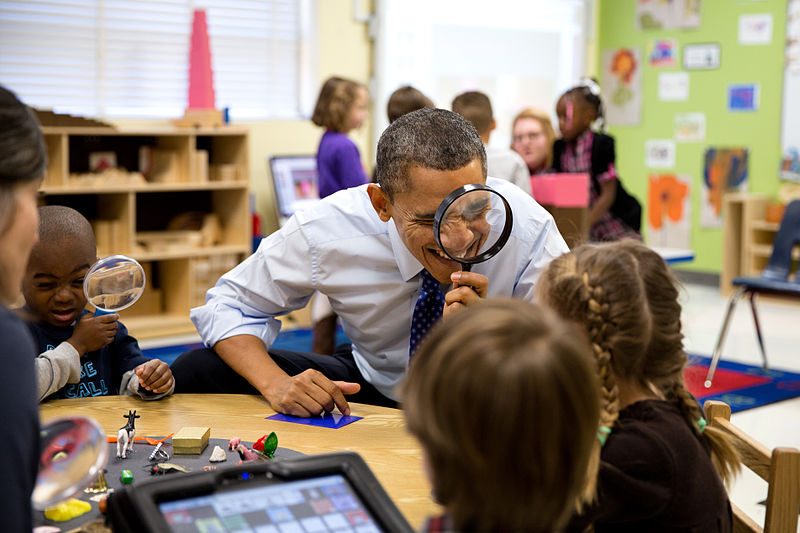Depending on what newspaper or website you’ve read most recently, you may think it’s time for your local municipality or state to fully fund pre-K or that the increasing focus on expanding pre-K is completely overblown. Either early childhood education is the panacea for all our problems and achievement gaps, or it’s not a worthwhile investment. The truth lies somewhere in between.
Universal pre-K by itself is not going to inculcate children from future bad educational experiences or magically rectify all of the problems inherent in the U.S. education system. But high-quality pre-K is still an important public investment that can dramatically improve young children’s early educational experiences and long-term outcomes.
Still pre-K advocates need to reckon with emerging research which conflicts with the accepted wisdom that early childhood education has significant long-term effects and make sure their arguments are nuanced so that the benefits of pre-K are not oversold. Even though increasing access to government-funded pre-K is embraced by politicians from both parties, advocates must not adopt rhetoric that overpromises.
Writing for the Brookings Institute earlier this month, Grover “Russ” Whitehurst asserts that it is time for pre-K advocates to “confront the evidence” and accept that expanding access to state pre-K for four year olds is unlikely to enhance student achievement. In his analysis, Whitehurst looks at the relationship between a state’s prekindergarten enrollment and fourth grade scores of students on the National Assessment of Education Progress (NAEP). He finds that states with large pre-K enrollments have students who perform slightly better — but that the effects are small. Whitehurst also references the latest evaluation of Tennessee’s state pre-K program, which ultimately found that while the program had short-term effects on child achievement at the end of pre-K, these effects disappeared as children entered elementary school and turned somewhat negative by third grade. In other words, by third grade, the control group — children who did not attend state pre-K — scored significantly higher in math and science than the pre-K group.
It is certainly important for pre-K advocates to acknowledge this research, but Whitehurst makes the wrong conclusions. He insists that pre-K advocates need to temper our “enthusiasm for more of the same” and consider other policy proposals to address poverty. But when reading Tennessee’s results, there are a number of variables worth considering:
- Is the Tennessee program truly high-quality?
- Is there something about the Tennessee program that makes it different than other state pre-K programs?
- Are Tennessee’s children receiving sub-par K-3rd grade education?
- Are pre-K students repeating content they already mastered in kindergarten and therefore tuning out from classwork?
- Are pre-K students receiving less attention from their early elementary school teachers?
- Are the positive impacts of pre-K more likely to be captured in an analysis of children’s social-emotional development?
When children flounder after a year of PK-12 education, concerned individuals shouldn’t just throw the baby out with the bathwater. As my colleague Sara Mead has written: “Asking whether ‘pre-K works’ is as pointless a question as asking whether fourth grade works.”
Thankfully, researchers in the field are beginning to highlight a variety of avenues for moving pre-K research, policy, and practice forward even as the field acknowledges that the Tennessee study conflicts with accepted wisdom. For example, in a recent commentary, Arya Ansari and Kelly Purtell offer fellow researchers five pieces of advice, including:
- “Be ever vigilant that we avoid contributing to the overpromise of one year of preschool education”
- “Pay closer attention to the additive and multiplicative benefits of children’s experiences throughout their educational careers”
- “Consider the implications of other educational policies and practices for the long-term effects of preschool”
This guidance is derived from a crucial understanding that the impacts of pre-K cannot be viewed in isolation from children’s subsequent educational experiences. Indeed, emerging research demonstrates that the benefits of preschool are sustained over time when young children go on to attend higher quality elementary schools.
Ultimately, pre-K advocates must be vigilant that their calls for expanded pre-K do not ask the public to engage in magical and unrealistic thinking about the benefits of universal pre-K programs. At the same time, we should continue to expand access to high-quality early education that is well-designed and intentional.
